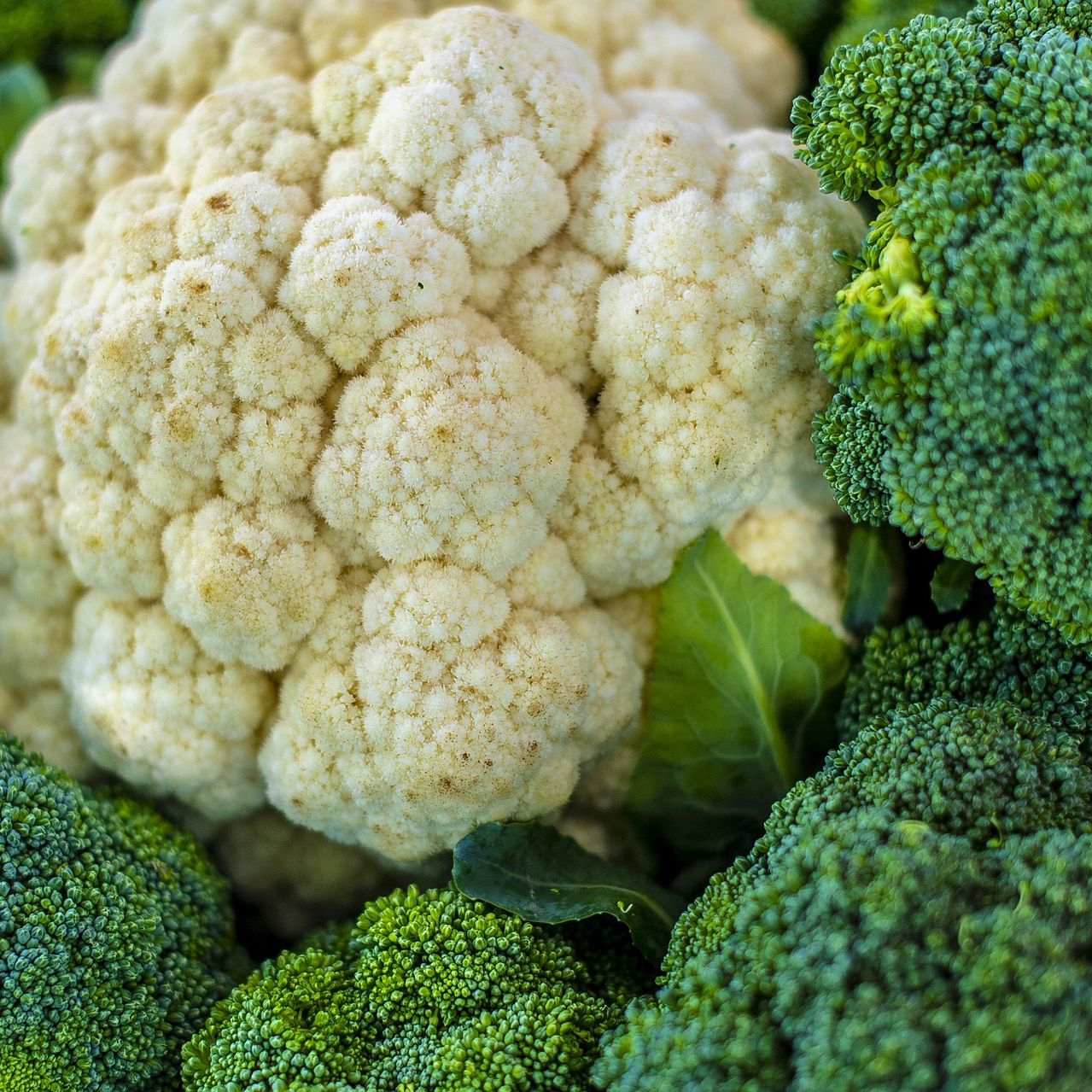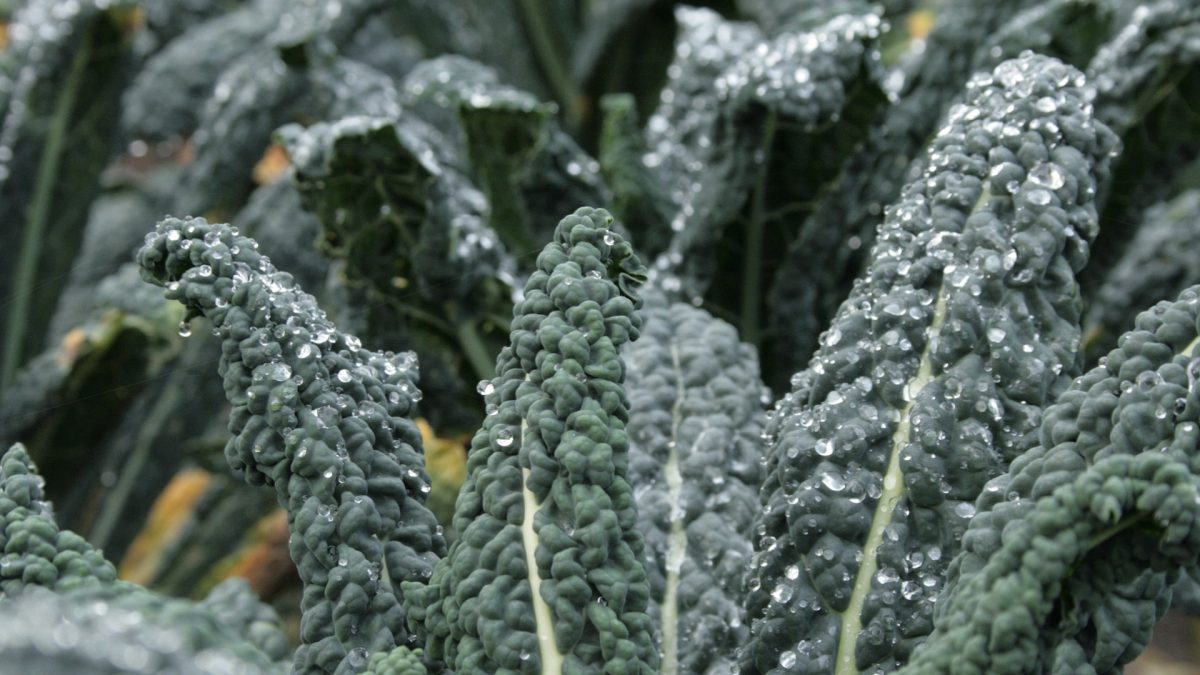
Cruciferous Vegetables
The more commonly known cruciferous vegetables include broccoli, cauliflower, and kale, but there are many others in this family, such as collard greens, watercress, bok choy, kohlrabi, rutabaga, turnips, arugula, radishes (including horseradish), wasabi, and all types of cabbage.
Cruciferous vegetables can potentially prevent DNA damage and metastatic cancer spread, activate defenses against pathogens and pollutants, help to prevent lymphoma, boost your liver detox enzymes, target breast cancer stem cells, and reduce the risk of prostate cancer progression. The component responsible for these benefits is thought to be sulforaphane, which is formed almost exclusively in cruciferous vegetables.
Beyond being a promising anticancer agent, sulforaphane may also help protect your brain and your eyesight, reduce nasal allergy inflammation, manage type 2 diabetes, and was recently found to successfully help treat autism. A placebo-controlled, double-blind, randomized trial of boys with autism found that about two to three cruciferous vegetable servings’ worth of sulforaphane a day improves social interaction, abnormal behavior, and verbal communication within a matter of weeks. The researchers, primarily from Harvard University and Johns Hopkins University, suggest that the effect might be due to sulforaphane’s role as a “detoxicant.”
For all these reasons, cruciferous vegetables get their own spot on my Daily Dozen, which recommends at least one serving of cruciferous vegetables and at least two additional servings of other vegetables a day, cruciferous or otherwise.
Indeed, if you were to add only one thing to your diet, consider cruciferous vegetables. Less than a single serving a day of broccoli, brussels sprouts, cabbage, cauliflower, or kale may cut the risk of cancer progression by more than half.
For substantiation of any statements of fact from the peer-reviewed medical literature, please see the associated videos below.
Image Credit: Pixabay. This image has been modified.
Popular Videos for Cruciferous Vegetables

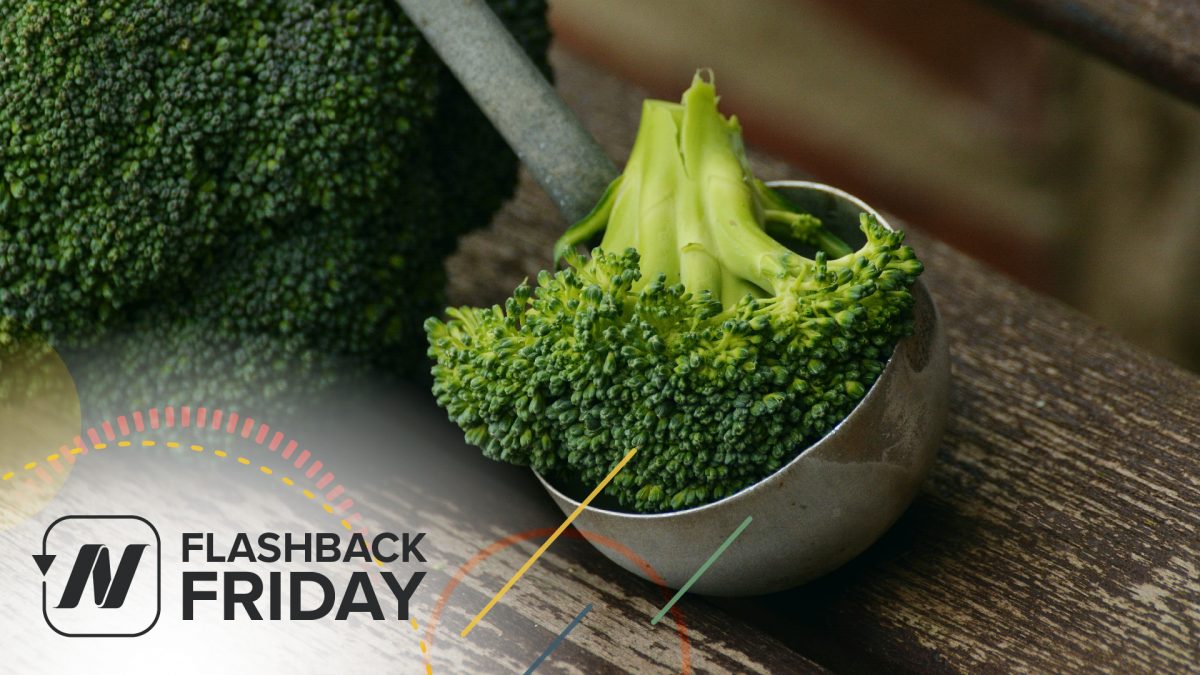
Flashback Friday: Second Strategy to Cooking Broccoli
Adding myrosinase enzymes in the form of even a pinch of mustard powder to cooked...
Flashback Friday: Which Vegetable Binds Bile Best?
Which foods are best at removing carcinogenic bile acids from the body: asparagus, beets, broccoli,...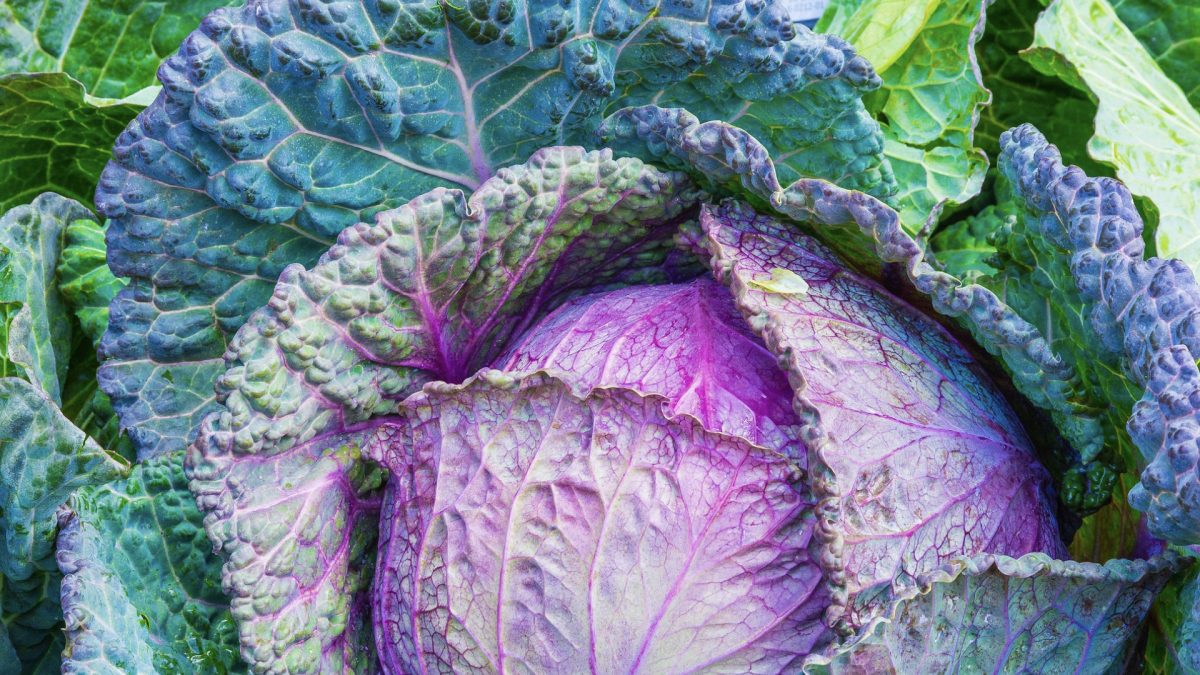
Benefits of Cabbage Leaves on the Knee for Osteoarthritis
Unbelievably, a randomized controlled trial of cabbage leaf wraps for arthritis was published.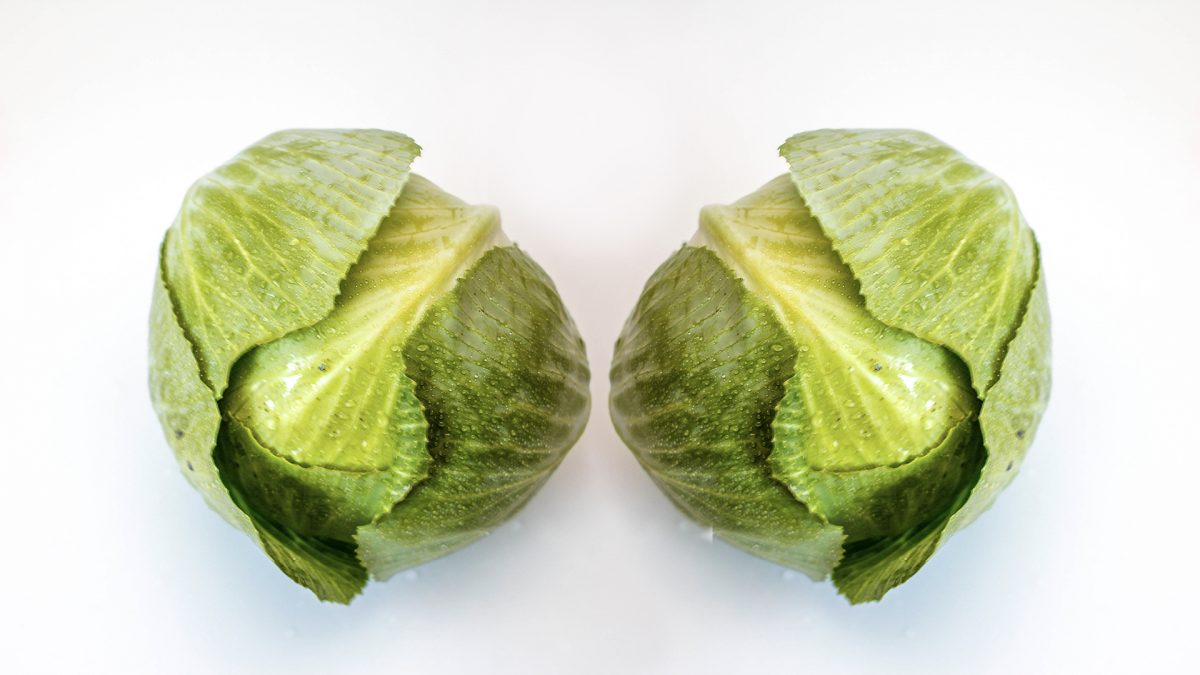
Benefits of Cabbage Leaves for Relief of Engorged Breasts
Cabbage is put to the test in a randomized controlled trial.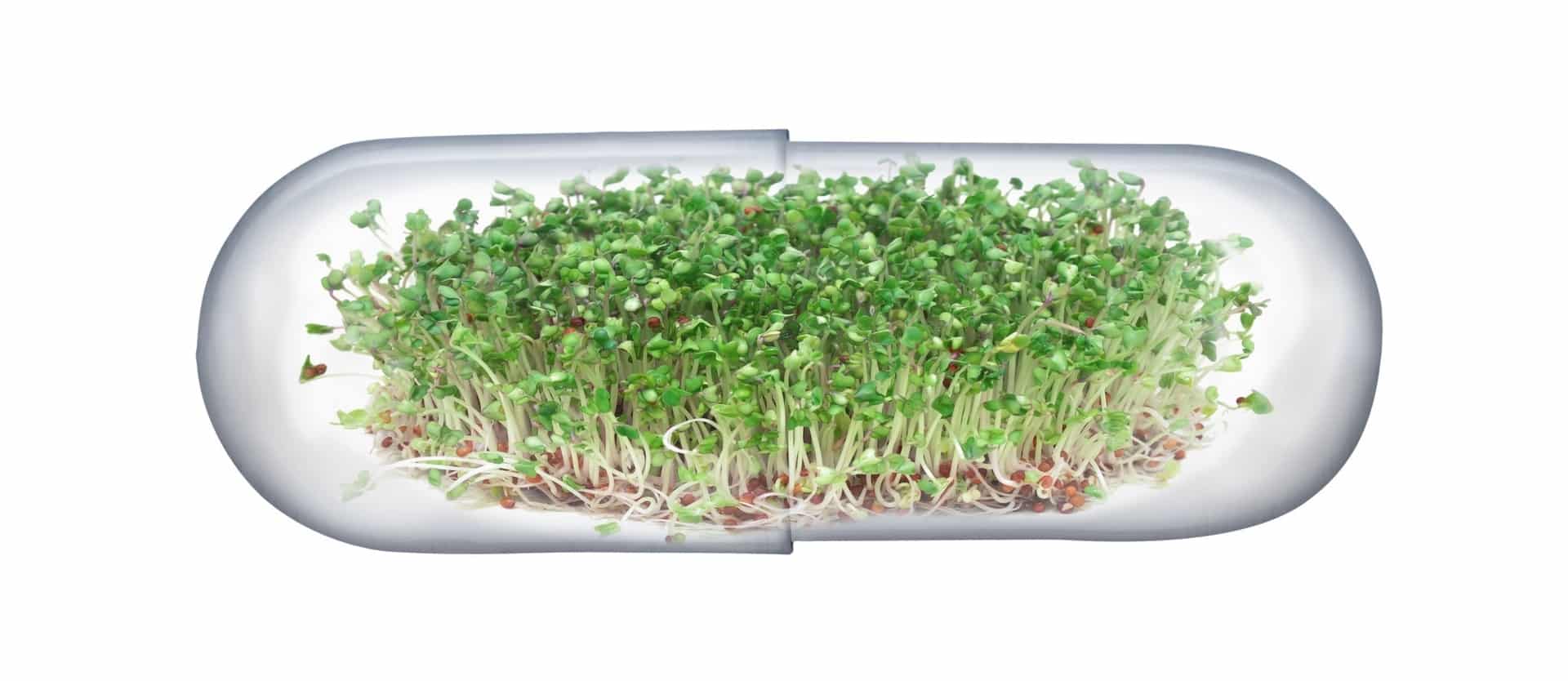
Broccoli: Sprouts vs. Supplements
Broccoli sprouts are compared to “Broccomax” supplements.All Videos for Cruciferous Vegetables
-

How to Prevent Wrinkles with Diet
The evidence supports the recommendation to follow a whole food, plant-based diet for healthier looking skin.
-

How to Get Rid of Garlic Breath
After study participants took some garlic, researchers gave them whey protein, lemon juice, green tea, chlorophyll, 7UP soda, a raw pink lady apple, a cooked apple, parsley, spinach, and mint leaves. Which do you think worked best?
-

How to Boost Collagen Synthesis with Diet
Which foods can increase collagen deposition and prevent wrinkles?
-

Which Foods Are the Most Anti-Angiogenic?
For cancer prevention, researchers suggest “constant consumption” of anti-angiogenic foods.
-

Greens, Green Tea, and Nuts Put to the Test for Telomeres
Not all plant foods are linked to less cellular aging based on telomere attrition, and not all animal foods are linked to more.
-

The Impacts of Plant-Based Diets on Breast Cancer and Prostate Cancer
Why do people who eat more plants get less breast and prostate cancer?
-

The Best Diet for Cancer Patients
What diet should oncologists recommend?
-

The Purported Benefits of Vitamin K2: Should You Take Supplements?
Our body can make vitamin K2 from the K1 in green leafy vegetables.
-

How to Treat H. Pylori Naturally with Diet
What food can eradicate H. pylori in the majority of patients?
-

The Efficacy and Side Effects of Moringa Leaf Powder
Why don’t I recommend moringa?
-

The Benefits of Moringa: Is It the Most Nutritious Food?
Does the so-called miracle tree live up to the hype?
-

The Food That Can Downregulate a Metastatic Cancer Gene
Women with breast cancer should include the “liberal culinary use of cruciferous vegetables.”
-

Does Pressure Cooking Preserve Nutrients?
How Dr. Greger pressure steams his greens.
-

Recipe: Veggie Mac & Cheese
A cruciferous spin on macaroni and cheese, this recipe takes comfort food to a whole new level, and is a tasty way to check off a few servings on the Daily Dozen checklist. This recipe comes from Kristina, our Social Media Director.
-

How to Cook Greens
Dark green leafy vegetables are the most nutrient-dense foods on the planet. What’s the best way to prepare them?
-

Best Way to Cook Vegetables
Boiling, steaming, microwaving, air frying, and sous vide cooking are put to the test for nutrient retention.
-

Dr. Greger on Live with Kelly and Ryan
Watch my JanYOUary 2018 segment on Live with Kelly and Ryan.
-

Best Brain Foods: Berries and Nuts Put to the Test
Randomized controlled studies put nuts, berries, and grape juice to the test for cognitive function.
-

Benefits of Cabbage Leaves for Relief of Engorged Breasts
Cabbage is put to the test in a randomized controlled trial.
-

How to Win the War on Cancer
How effective is chemotherapy for colon, lung, breast, and prostate cancers?
-

Benefits of Cabbage Leaves on the Knee for Osteoarthritis
Unbelievably, a randomized controlled trial of cabbage leaf wraps for arthritis was published.
-

The Benefits of Kale and Cabbage for Cholesterol
Dinosaur kale and red cabbage are put to the test.
-

Dr. Greger’s Daily Dozen Checklist
In my book How Not to Die, I center my recommendations around a Daily Dozen checklist of everything I try to fit into my daily routine.
-

Autism and Casein from Cow’s Milk
Casomorphins—breakdown products of casein, a milk protein, with opiate-like activity—may help explain why autism symptoms sometimes improve with a dairy-free diet.
-

The Best Diet for Fibroids
The same diet that helps regulate hormones in women may also reduce exposure to endocrine-disrupting pollutants.
-

Best Foods for Autism
The sulforaphane found in five cents’ worth of broccoli sprouts has been shown to benefit autism in a way no drug ever has in randomized, double-blind, placebo-controlled study.
-

Fighting Autism Brain Inflammation with Food
One food may be able to combat all four purported causal factors of autism: synaptic dysfunction, oxidative stress, mitochondrial dysfunction, and neuroinflammation.
-

Fever Benefits for Autism in a Food
Dramatic improvements in autistic children when they have a fever suggest that the disease may be reversible if one can replicate the phenomenon in other ways.
-

Dr. Greger’s Daily Dozen Checklist
In my book How Not to Die, I center my recommendations around a Daily Dozen checklist of all the things I try to fit into my daily routine.
-

How to Reduce Your TMAO Levels
Should we be concerned about high-choline plant foods, such as broccoli, producing the same toxic TMAO that results from eating high-choline animal foods, such as eggs?
-

Fermented or Unfermented Soy Foods for Prostate Cancer Prevention?
Which appear more protective: fermented soy foods, such as miso and tempeh, or unfermented soy, like tofu and soy milk?
-

Best Food to Counter the Effects of Air Pollution
There is a food that offers the best of both worlds—significantly improving our ability to detox carcinogens like diesel fumes and decreasing inflammation in our airways—all while improving our respiratory defenses against infections.
-

How to Regenerate Coenzyme Q10 (CoQ10) Naturally
Chlorophyll in our bloodstream after eating greens may react with wavelengths of sunlight that penetrate through our skin to reactivate the antioxidant Coenzyme Q10 (ubiquinol).
-

Using the Produce Aisle to Boost Immune Function
Vegetables tested head-to-head to see which boosts immune function best.
-

Putrefying Protein and “Toxifying” Enzymes
Certain gut bacteria can “retoxify” carcinogens that your liver successfully detoxified, but these bacteria can be rapidly suppressed by simple dietary changes.
-

Treating Dry Eye Disease with Diet: Just Add Water?
Causes of dry eye disease include LASIK laser eye surgery, but there are dietary approaches to prevention and treatment.
-

Does Rye Bread Protect Against Cancer?
The lignans in rye could explain why rye intake is associated with lower breast and prostate cancer risk.
-

The Safety of Heme vs. Non-Heme Iron
Heme iron, the type found predominantly in blood and muscle, is absorbed better than the non-heme iron that predominates in plants, but may increase the risk of cancer, stroke, heart disease, and metabolic syndrome.
-

Diet and GERD Acid Reflux Heartburn
Which foods should we eat and avoid to prevent and treat acid reflux before it can place us at risk for Barrett’s esophagus and cancer?
-

Bowel Wars: Hydrogen Sulfide vs. Butyrate
Sulfur dioxide preservatives in dried fruit, sulfites in wine, and the putrefaction of undigested animal protein in the colon can release hydrogen sulfide, the rotten egg gas associated with inflammatory bowel disease.
